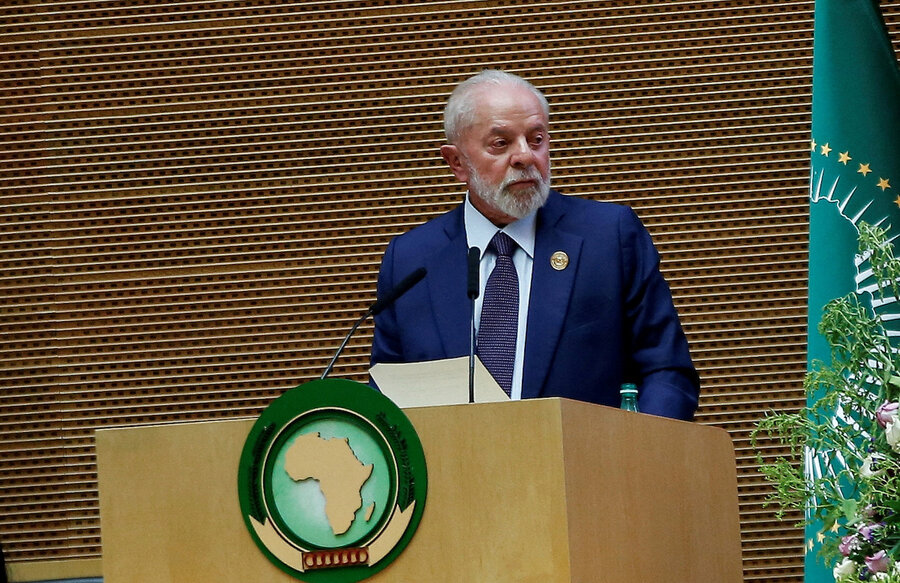Rise of the Global South: How Brazil wants to change the G20
Loading...
| Brasilia, Brazil
Brazil’s President Luiz Inacio Lula da Silva has set his sights on giving the Global South a larger voice in world decision-making, using his country’s presidency this year of the G20 group of largest economies.
Mr. Lula’s call for reform of global governance and the updating of the eight-decades-old United Nations system was amplified at last week’s meeting of G20 foreign ministers in Rio de Janeiro. The push continues this week as G20 finance ministers meet in São Paulo.
However, diplomats said it would be an uphill battle to expand the U.N. Security Council, where countries with veto powers may pay lip service to the idea but have long delayed discussions that would dilute their status.
A new set of priorities
Mr. Lula, a leftist and well-established voice for the developing world, has set reducing hunger and poverty and curbing climate change as priorities under Brazil’s G20 presidency.
He also wants better representation of the Global South in the multilateral system, including financial institutions set up after World War II: the International Monetary Fund and the World Bank.
“There are those who question the concept of the Global South, saying that we are too diverse to fit together. But there are many more interests that unite us than differences that separate us,” Mr. Lula said at a conference in November.
Bringing more voices to the table
Brazil has already taken strides in this direction by insisting that the African Union should be a formal member of the G20, citing the example of the European Union. The AU will participate fully in this year’s G20 on behalf of African nations.
Members of the South American customs union Mercosur have also been invited to attend under the Brazilian presidency.
Bringing more developing nations to the table adds pressure on financial institutions traditionally controlled by Europe and the United States to consider proposals such as a Brazilian one to reduce countries’ debts by converting them into investments.
Changing the dialogue
At this week’s G20 meeting of finance ministers and central bank governors in Sao Paulo, the Global South will lead the way in crafting the final statement, expected to mention shifting more money from advanced nations into the development of emerging economies, according to a G7 country official.
“The G20 is becoming the main battlefield between advanced economies and the Global South economies,” the official told Reuters, on condition of anonymity.
“The Global South economies want to take leadership of the G20 forum, particularly with the United States preoccupied with the U.S. elections and Europe’s economies weak,” the official added.
The rise of the Global South in the G20 has caused some discomfort among the richer countries. But developed nations will have to deal with the new geopolitical realities, said EU foreign policy chief Josep Borrell.
“Brazil has focused on the interests and concerns of the so-called Global South. It is no longer a dialogue just between the great powers,” he said in an interview, adding that this was a positive development to avoid the division of the world into “the rest against the West.”
“Having the African Union at the table is very important. In 20 years, 1 in 4 people in the world will be African,” Mr. Borrell said.
The scope of the G20
The G20 was started after the 2007–2008 financial crisis to include important emerging economies in talks that had been confined to the Group of Seven industrialized nations and has become the main venue for economic and financial cooperation.
The G20 represents around 85% of the global GDP, over 75% of global trade, and about two-thirds of the world population.
The Global South concept emerged to designate developing, emerging or lower-income countries, mostly in the Southern Hemisphere, and replace the term “Third World” after the Cold War ended.
This story was reported by Reuters.





